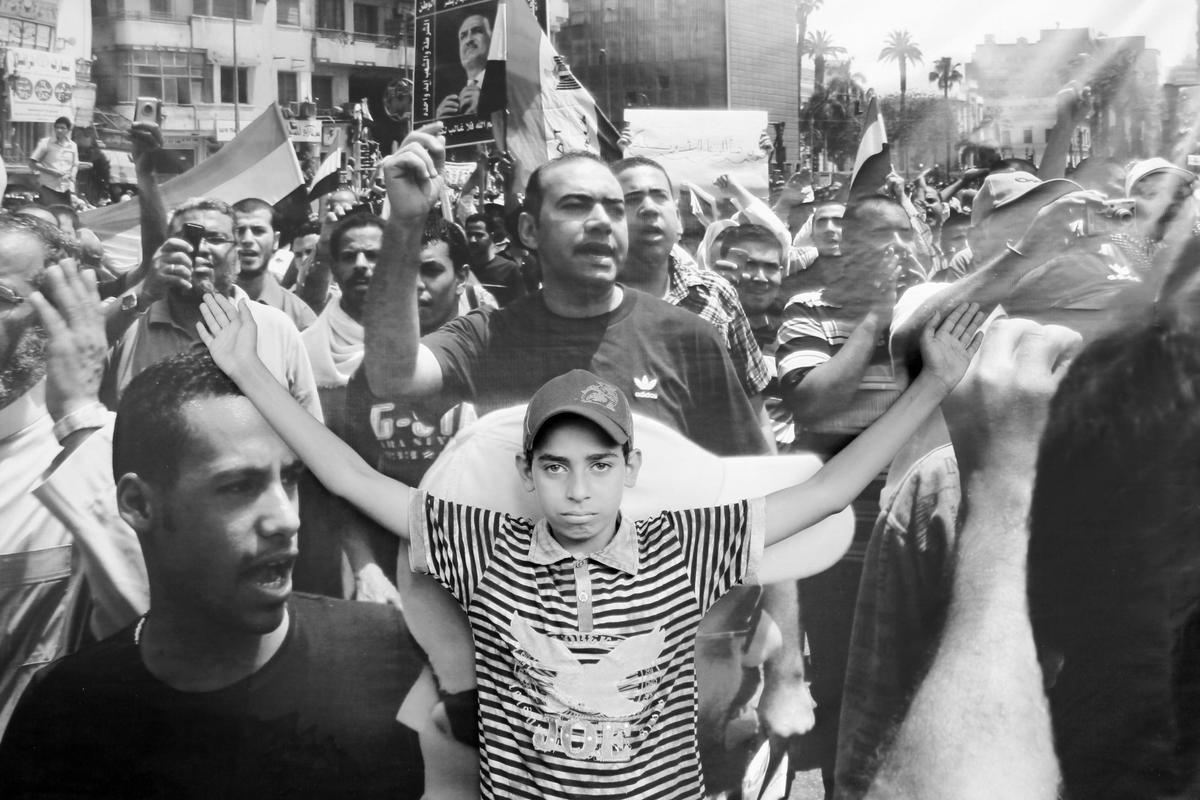On three consecutive nights at the end of April, TV journalist Yousry Fouda’s show Akher Kalam (Last Words) considered the case of Dr. Sibai Ahmed Sibai, Egypt’s notorious head medical examiner. It was Sibai who had signed his name to the document that concluded that the activist Khaled Said had died after swallowing large amounts of low-grade hashish. Said, eighteen, had been beaten to death by two police officers at an Alexandria cybercafe in June 2010, and morgue photos of his brutalized face were all over the internet. It was a ludicrous charge — like saying he’d choked to death on pornography. Sibai was also the doctor who claimed that Mubarak’s health was too fragile for him to be moved from Sharm el Sheikh to his cell in Tora Prison, Cairo.
On the first night, Fouda hosted guests who had incriminating documents showing malpractice and corruption on the medical examiner’s part. On the second night, the medical examiner was given the chance to reply to the allegations against him. Dr. Sibai, who had graduated from college with a D average, proudly proclaimed that his appointment was entirely the work of Amn el Dawla, the state security apparatus. On the final day, Fouda hosted Khaled Said’s sister, Dr. Sibai, and Ayman Nour, a politician who had been tortured by Amn el Dawla and then examined by Dr. Sibai during his court case. The three-day saga was a Law & Order–style drama on live television, and it ended with a plea for an investigation into Dr. Sibai’s practices. One week later, he was sacked.

Dr. Sibai: When you raise questions about the medical examiner, you are asking for chaos.
Yousry Fouda: What is your personal view on the Khaled Said case? You issued a detailed medical report concluding that he died from swallowing his own hashish when the police stopped him.
Dr. Sibai: I would rather not comment.
Najd Berry, a lawyer: There were photographs of him with major facial and bodily damage, including broken teeth. How did these wounds happen?
Dr. Sibai: These were caused by the autopsy at the morgue. The teeth were fine in reality but looked bad in the photo.
Dr. Mohammed Abdul Aziz, a lawyer who specializes in torture: You did not consider what other people have said. Khaled Said was killed by torture.
Dr. Sibai: Who said he was not tortured? All I said is, Khaled Said died from the hashish swallowing.
Yousry Fouda recalls the 1985 incident in which Suleiman Khater, an Egyptian soldier stationed at a guard booth on the Israeli border in Sinai, had been told to stop any Israeli trespassers with orders to shoot to kill. When a group of twelve Israeli civilians refused his orders to stop, Khater shot and killed seven. He was arrested and later found dead in his jail cell. The official medical report accused Khater of being mentally insane and concluded he had hanged himself in an act of suicide. Yet photographic evidence of strangulation marks on his neck told a different story. The author of the medical report was Dr. Sibai.
Dr. Sibai: This is a different agenda and you are sneaking around the main subject. [To the audience] Ignore this.
Yousry Fouda: During the revolution, one man took the body of his son from the morgue and buried him. Later, he found that his son was still alive and in a Cairo jail. Why would you allow a man to take a body without confirming the identity?
Dr. Sibai: Usually we conduct DNA tests to confirm the identity, but in the chaos during the revolution people would just go inside the morgue, check the bodies themselves, take the ones they recognize, and leave. Anyway, we said that if this is a mistake, return the body. Take the body; bring it back if it is not yours.
Yousry Fouda expresses surprise at the idea of “returning” bodies during a revolution, and asks Dr. Sibai what happened when he discovered that mistakes had been made.
Dr. Sibai: I informed the prosecutor.
Yousry Fouda: But how could you just let people remove bodies from the morgue?
Dr. Sibai: I was threatened with violence if I did not give up the bodies. Thugs were coming in to steal them to get the 50,000 pound reward for the bodies of missing people.
Yousry Fouda: This is a handwritten note by you saying that you gave an unidentified body of a protester to a family without confirming that the body belongs to them.
Dr. Sibai: Let’s not talk about these things. I can tell you have some revolutionary thoughts.